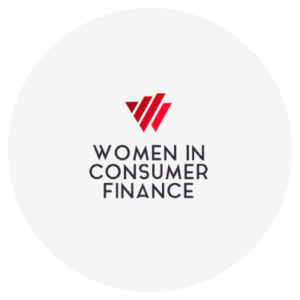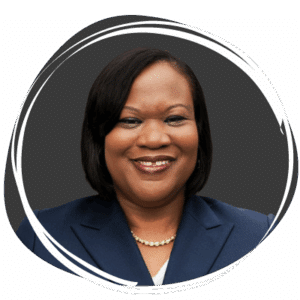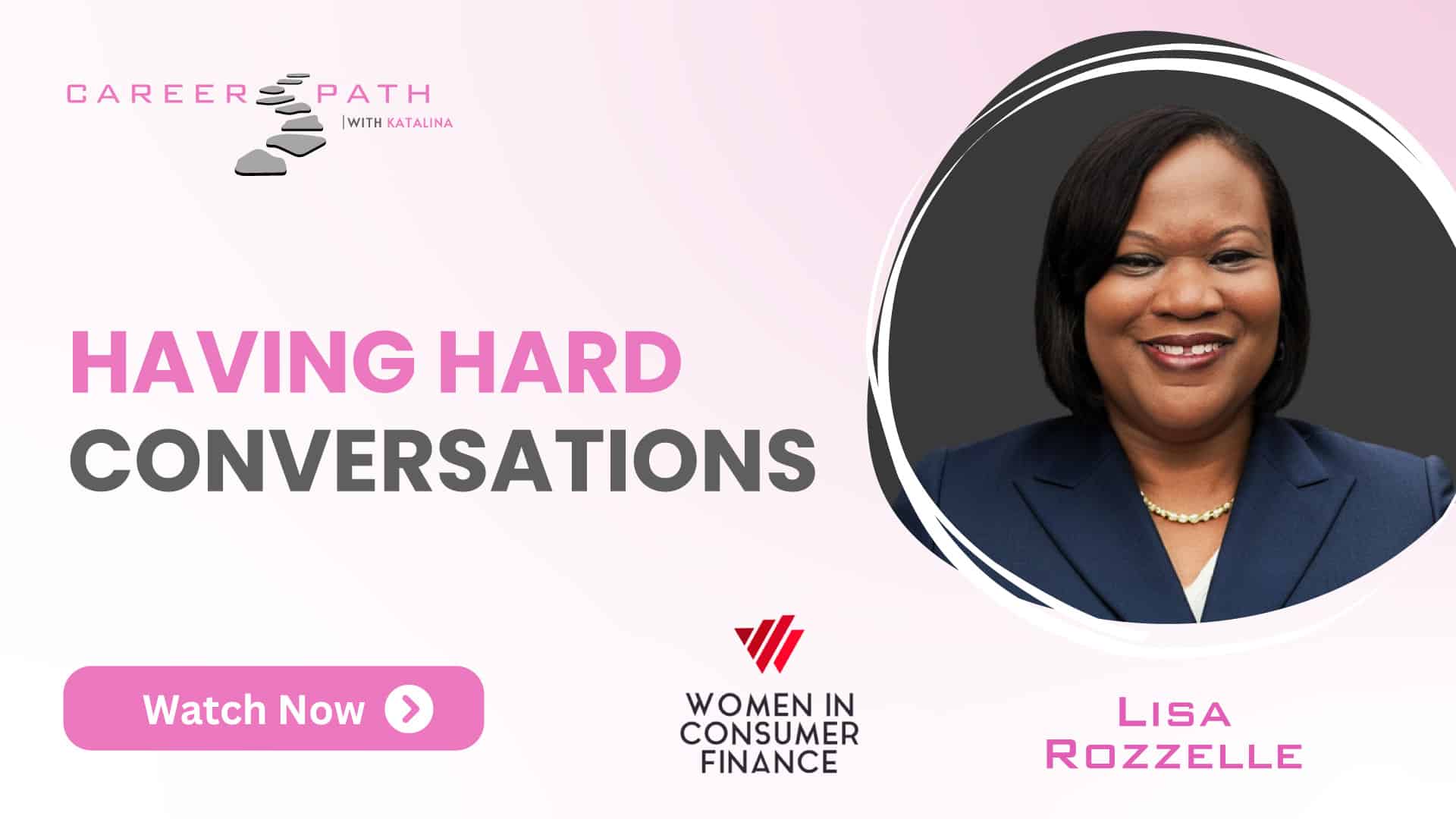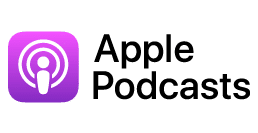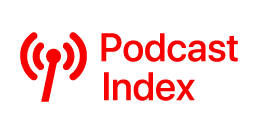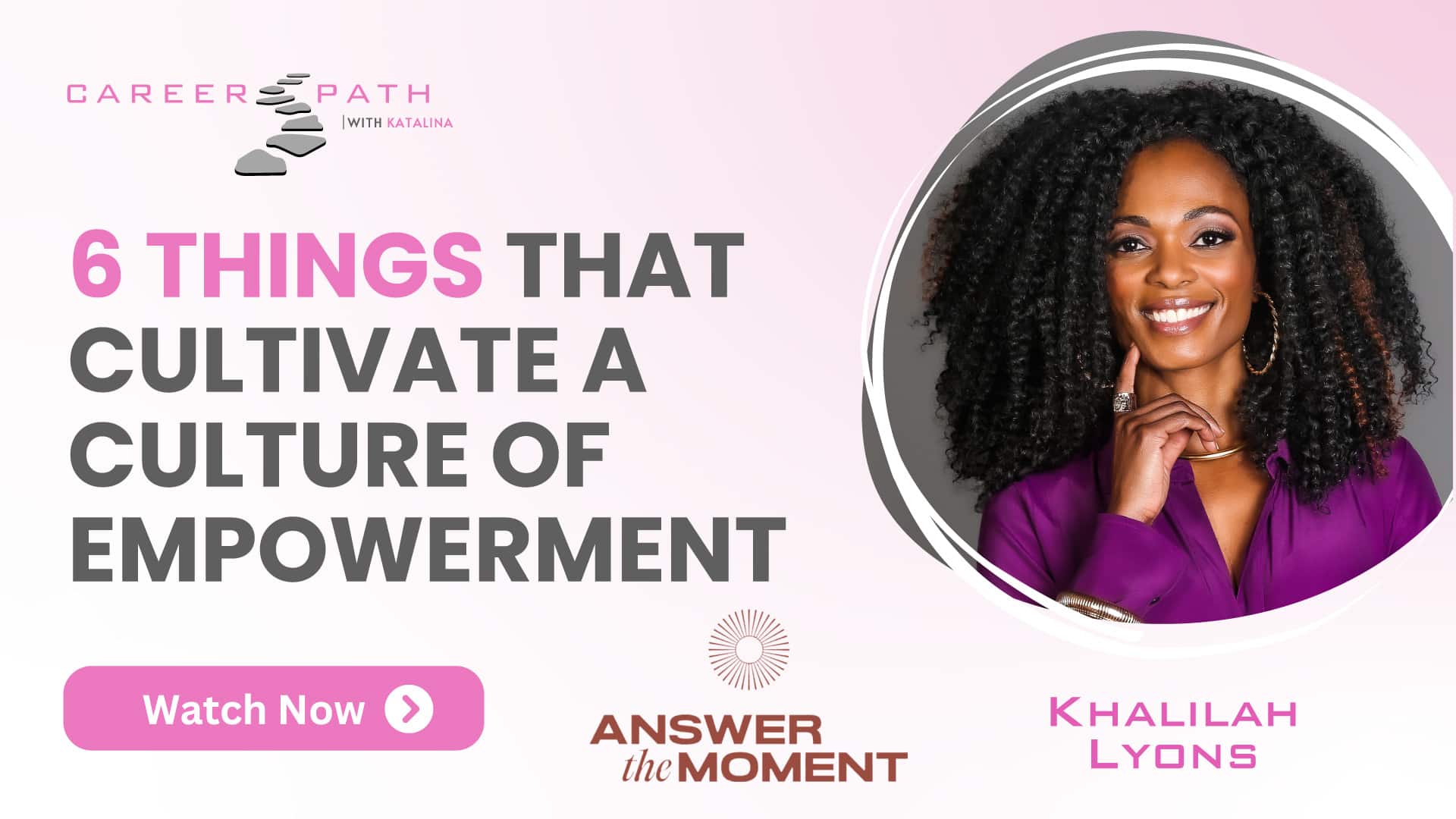Katalina Dawson (00:11)
Hello and welcome back to another episode of Career Path. I am your host, Katalina. Today we are covering the topic of having hard conversations. And to discuss this with me, I have Lisa Rozzelle, who is the Director of the Women in Consumer Finance. Lisa, it is such a pleasure to have you on today. Thank you so much for joining me.
Lisa Rozzelle (00:28)
Thank you, Katalina. It's great to be here. I'm super excited to talk about this topic.
Katalina Dawson (00:31)
Me too! Now before
we dive into it though, as always I'd love to hear a little bit about yourself and how you got to where you are today.
Lisa Rozzelle (00:40)
So the interesting part is, know, people say all the time, I've lived a million lives, or maybe they don't. I say it all the time. I've lived a million lives. You know, I started with a federal contracting firm, and we did learning and development there where we went into organizations like the US Census Bureau, and we taught them how to do change management and how to do professional development initiatives throughout the organization and the federal aviation administration. They were some of our clients in the DC area. And then,
Katalina Dawson (00:44)
Mm.
Lisa Rozzelle (01:04)
because of some life changes, had some kids, needed to be home a little bit more. I did a change of my journey, I guess. I chose some other options that allowed me to be home and not traveling so much. And what I did was I just said, I need a job that's just a nine to five that I can get off and have, you know, get home to the family. And I found a job at one organization that happened to be in consumer finance. And it was a nine to five, it worked well, you know, ended up being something that I loved. It was just supposed to be a quick job, but it turned into a career move that I've since, you know,
Katalina Dawson (01:19)
Yeah.
Lisa Rozzelle (01:32)
It's progressed over 10 years now and I've had a chance to meet some phenomenal professionals, you know, since I've been there. Most people in the consumer finance industry that I meet have been doing it 20, 30 years. So I feel kind of like a baby here, learning from the best, hanging with the best and having the best of friends as I travel. So it's been a great journey.
Katalina Dawson (01:49)
I love that. And I feel like that too. I definitely feel like a baby in the industry. So I connect with you there. Now I've had a guest share this previously and I was like, what a great idea. So I've started kind of doing this on the episodes. I'd also love to hear something outside of the workplace that sparks joy in your life. Is that a hobby? Is it your kids?
Lisa Rozzelle (01:53)
you
It's definitely going to be the boys. I have two teenage boys. They're now 14 and 15 and they're super involved in sports and activities at school. So we spend a lot of time either on the road traveling with the athletic side of one of my sons and the other ones in the band. So they travel a lot. They're in some phenomenal programs for school. So we spend a lot of time just running behind those boys and excited about it. Yeah, yeah.
Katalina Dawson (02:32)
The best kind of busy, huh? I
love it. Awesome. Well, now let's dive into our topic today about having hard conversations. And the root of relationships is conversation. So I'd love to start with talking about relationships and relationship building.
Lisa Rozzelle (02:41)
Yeah.
So for me, I'll share this, relationship building has been the key to everything that I do. Literally how I make friends, how I move throughout my career, how I've advanced in any way possible. It always started with the idea that I needed to build that relationship, whatever it was. It could be something as simple as running into someone at the post office. If you got a few minutes in line, let's talk, let's get to know each other. Because you never know. Almost every connection that I make leads me to another connection that's benefited me in some way. So I try to move with intention. I learned that
years ago and I've tried to implement it in every aspect of my life. So what I'll say about relationship building as it relates to hard conversations or having to have them is that a lot of times when you've taken the time to build that relationship, that conversation, even though it still might be a little prickly, it might be a little difficult, it might be a little apprehensive.
The lift gets a little bit lighter when you know the person, you know little something about them or you've taken the time to understand how they move and operate. So I think relationship building is the key to whatever next step you need to make when you're dealing with individuals.
Katalina Dawson (03:50)
Absolutely, building true relationships is what creates organic opportunities in organic support systems.
Lisa Rozzelle (03:57)
Absolutely, I agree.
Katalina Dawson (03:58)
But then we're talking about kind of the positive side of relationships, but then those conversations can turn very hard when there's either a change in the relationship or if you're trying to build a relationship and the other party doesn't want to. And the first thing that I thought of with this is if, you're working on a project, you're assigned to work with somebody else on the project, and you're like, all right, great, let's work as a team. And they don't seem to want to work as a team.
Lisa Rozzelle (04:01)
Yes, yes.
Katalina Dawson (04:24)
Whatsoever, but you're like we have to do something because we have to do this together
Lisa Rozzelle (04:26)
Yeah.
Yeah, we don't have a choice, right? We need to get this
done. know, whatever the obstacle is that's keeping us from connecting, we have to figure it out. And what I'll say about myself is...
I usually take that on. Like depending on the individual I have to work with, I would say, I'm going to go into that conversation and I'm going to ask the questions. You got to stay curious, right? Why can't we connect? What's going on? if you know you've done nothing to that individual to make it impossible or difficult to have those conversations, you have to assume that maybe something else is going on and you won't know if you don't ask. So that's where, you know, the transparency comes in. You can say, you know, hey, it feels like, we're having a hard time connecting or aligning here. Tell me what's going on. You know, what are you experiencing or what's happening? Why isn't this
connection happening for us. And you can ask that hard conversation and figure out how to get to the other side of it because you have to be able to build that relationship and get beyond that because this can't be the boundary that keeps us from getting the work done, right? So you sit down with that person, you talk it out and try your best to build from there.
Katalina Dawson (05:20)
Yeah.
I agree. And there's also such a power, you had mentioned it, in listening to another person and truly trying to take their perspective. Because there could be something deep going on that has nothing to do with you whatsoever, but the more you understand them and where they're coming from and can connect with them on that level, the better it is to build that relationship. And now can we talk a little bit about the changing relationships? So say you have a really
positive relationship with a coworker and then they get a promotion and now they're boss man or boss lady. The dynamic has completely shifted.
Lisa Rozzelle (05:56)
Yeah, yeah.
And what happens is a lot of times, whether it's a change within the in the organization or a change outside, like for myself, I transition outside of the industry per se, you know, I'm still consumer finance, but I'm not actually in an organization that does that kind of work. I'm working, you know, with those individuals. So there's been a shift for me. So a lot of times you may have to redefine that relationship by just, you know, figuring out what it looks like now.
or if you're in a situation where you were working with some peers and now you're promoted, they're still ideally your friends, but that friendship may have to look different. So you have to be open to have those conversations, be open to see what those feelings look like around the shift and change, because people may be reacting to the person they think you're going to be as a result of this change, and maybe haven't given you a chance to show who you are yet. But understanding that it's coming from a good place, they're just uncertain. So they're waiting to see, and you go into it with positive intent, saying, I'm going to show up.
the best person I know how, I'm gonna stay curious, I'm gonna stay open, and I'm gonna pay attention. That's the hard part. And for me, what I try to do is I spend a lot of time people watching. Like I watch in meetings, I watch when I go places, I pay attention to how people respond to certain things. So if I know an individual and I've taken the time to be intentional about knowing that individual, I might have a little bit of insight about what works with the best way to communicate with them and to build that relationship to wherever we're trying to go.
whether it be a better work relationship, a better friendship, whatever we're building, if I've taken the time to kind of figure out who that person is, I know that now that I'm in my new role, you know, they may be feeling a little anxiety because they're not sure where our relationship lies. I can get ahead of that. You know, rather than meet you there, I can beat you there because I already know there might be a little bit of anxiety around what's to come, the uncertainties of what our new relationship is going to look like.
Katalina Dawson (07:43)
Mm-hmm.
Lisa Rozzelle (07:43)
So why
wouldn't I just address that head on? Why wouldn't I say, look, I know we've been friends for years, you now I'm in this new role, you know, here's what you can expect from me. Here are the things that you can still expect from me. Because hopefully I've built a foundation where they find some comfort in what we've already built together. And the shift in the role wouldn't change that too much.
Katalina Dawson (08:02)
Yeah, I love that the addressing it before it becomes an issue and before it becomes a question even. ⁓ And another key I feel to this relationship change is holding boundaries and finding where those boundaries should be to maintain a healthy relationship that doesn't go too far in either direction. Doesn't become a, there's a wall between us because one person is the boss now and the other one isn't. And so there isn't,
Lisa Rozzelle (08:06)
Yeah.
Katalina Dawson (08:30)
a sense of favoritism, I guess, or like too much comfortability where things aren't getting done or other people in the office feel like, you know, I can't say anything to this guy because he's really good friends with the boss and they're too tight and I can't be like, hey, where's my report to him? And it'll cause issues in the workplace from a functionality and operational standpoint. So making sure that there are certain boundaries there.
Lisa Rozzelle (08:32)
Yeah.
Yeah. ⁓
Katalina Dawson (08:58)
but also still maintaining a vulnerability because if you don't, if you put up that like giant wall, you're not connecting with others. And it's a hard conversation to have and it's a hard relationship to sometimes balance when there's that switch there. But it's an important one to try to navigate as best you can.
Lisa Rozzelle (09:15)
Yeah,
I always think about boundaries as boundaries are only valid and supported when people understand where they come from. So we're back to the relationship, right? We're back to having these conversations. I can set a boundary with you and say, these are the things that I want. These are the things that I will allow. These are the things that I can support and I can't. But a lot of times the important part that we forget to share is the why. Katalina, let me tell you why I need this to be in place. You can tell me how you feel about it and we can come to an understanding about what that's going to look like. So if you see
Katalina Dawson (09:23)
Yeah.
Lisa Rozzelle (09:45)
somebody coming in my office a lot and you know that we were friends before the shift in our relationship and you know now that I'm your boss, if you've got concerns, hopefully I've built a relationship where you can come in and talk to me about that. If I haven't though...
Katalina Dawson (09:55)
Mm-hmm.
Lisa Rozzelle (09:56)
because I'm the leader and I can anticipate that there's gonna be some feelings around that, my boundary is still set. I still have them set, but what I now wanna do is explain why they're there or what we need to do about them or how they may look different now because there's been a shift in that relationship. That's where the conversation comes in and that's where it gets tough, right? Because how do you share those words? How do you share them on a one-on-one situation, peer to peer?
Katalina Dawson (10:14)
Yeah.
Lisa Rozzelle (10:19)
How do you share it with a larger group? How do you break that down to where everybody gets the same message, but each individual gets the message that they need to receive? Sometimes it's a little bit of different work because what I'll say is for me, I love to do one-on-one conversations because in my instance, I've taken the time to know that person. So I know where to meet them, or at least I'm gonna try my best to meet them where they are. And I'm gonna check in along the way. I'm gonna say, look, I have something hard I need to share with you.
Katalina Dawson (10:24)
Mm-hmm.
Absolutely.
Yeah.
Lisa Rozzelle (10:45)
based on how we've engaged in the past, this is how I think I can share it. But I'm gonna check in with you as I go. I'm gonna virtually hold your hand as I say this, because I want you to understand and hear me when I say what I have to say. And I want us to be okay at the end of this conversation. When if we're not, I want us to be able to talk about why we're not. So that's how you can kind of break it down a little bit as you go. And then if you're able to share in a group, it helps because now we've had a chance to share together, we've had a chance to build a culture of transparency.
and authenticity. You know, I'm just like, we're in this meeting and we're talking about it together. So now everybody can share insights. They can share concerns rather than me sharing it with five different individuals separately. And then me as the leader have to now summarize everybody's feelings, where they are coming from. You know, we had a chance to just hash it out together because that's the culture we built through our communication and our relationship.
Katalina Dawson (11:25)
Hmm.
Yeah, the why is key. And another area where that is definitely, definitely a key piece is in any feedback, critique, or even discipline. So something I've learned with my own team too is if you say, hey guys, this was wrong, you can't do this. And they just feel like you're coming at them from a place of negativity or a place of like, they're just like, my gosh, I did something wrong. What did I do? You have to explain why.
Lisa Rozzelle (11:54)
Yeah.
Yeah.
Katalina Dawson (11:58)
because
in these scenarios, whether it's feedback, critique or discipline, you're always trying to get to a place of learning and change at the end. That's always the goal. So, all right, we messed up here. What did we do wrong and how can we make sure it doesn't happen again? That's always where we're trying to get to. And the key to that is explaining why. So in a recent instance, something was put out that wasn't supposed to be put out, procedure wasn't followed. And I had to sit down and go, hey,
Lisa Rozzelle (12:18)
Right.
Katalina Dawson (12:25)
This is why we kind of freaked out when it came out because this could be a bigger issue because of ABC. This could be something really detrimental to our company. This could affect all of us. So this is why it's very important. And then they all went, okay. Now they have this deeper understanding. And from the deeper understanding, when I approach them with, right,
Lisa Rozzelle (12:39)
Yeah.
Katalina Dawson (12:45)
How are we gonna make sure this never happens again? They're invested in it too. It's not just me saying, okay, we can't do this again. This is how we're not gonna do it again. I gave them the why, which gives them also kind of that fire under them to be like, all right, I wanna solve this issue. I really wanna get to this resolution as well. And it helps everybody stay on the same team by understanding the why, by getting to the root of all of the problems.
Lisa Rozzelle (13:11)
Yeah.
Katalina Dawson (13:11)
It's a great thing to also, like you said, approach the curiosity and find out why from others. So when you are getting the feedback and critique for others, I've also tried to approach my team with being like, all right, this is weird. This is either not what we were going for, or I don't understand why you did this. I come at it with a, okay, how did you get to this design? Or how do we get to this point? Because they may have actually thought something or interpreted something.
totally differently from me and it's actually not bad or not wrong or they got misinformation. So coming at it again from that place of curiosity using that why in this case just to understand the person and their thought process and how they got to where they are.
Lisa Rozzelle (13:56)
Yeah. And I think what's key and what you're, what you're sharing, Katalina is the check-in. That's the part sometimes we miss. Like, you know, this is what I think I said, tell me what you thought you heard. You know, make sure that we're aligned, you know what saying? Because I may have thought I had one conversation and you're thinking we had a whole different conversation. That's why we didn't land in the same place. So a lot of times, you know, when you're in a role where you're talking to a team, whether you're the leader of the team or you're, you're authorized to have that conversation within a team as a team member, you know, you can say, okay, here's our directive guide. This is where we're working towards.
Katalina Dawson (14:06)
love it.
Lisa Rozzelle (14:26)
What's takeaway? What'd you get from what I just shared? And that way we can, in the room, in the space, in the moment, we can agree that we're all aligned before we all go in our separate directions. And then we come back and now something's happened. And I'm like, and me as the leader taking accountability for that team, if I'm just leading that team in that project and saying, you
Katalina Dawson (14:37)
Mmm.
Lisa Rozzelle (14:44)
Maybe there was a miscommunication, let me check back in, let me see what's going on. But the key to what I heard when you were talking was there was a check-in. I'm checking in with you to see the why is me reaching back out to say, let me see what's going on and how can we do things different the next time. Accepting accountability for the fact that as a team, we own this together. It doesn't matter that there might have been one misstep along the way, something else was missed for us to get there. So let's figure that all out so we can be better from whatever happened.
Katalina Dawson (14:52)
Yeah.
whether you're giving the why or you're searching for the why either way the why is absolutely key
Lisa Rozzelle (15:17)
You have to
dig into it either way, I mean, and that shows, you know, it shows that you care. That's where the compassion piece comes in too, right? You know, like, you know, I'm being vulnerable in the moment acknowledging that, you know, we missed something as a team, something because there has been a mistake and a misstep, something wasn't aligned. Let's work on our communication. Let's make sure we each understand what's going on. Make sure that everybody feels comfortable asking questions. Maybe you walked away and you're thinking,
it's too late now. I've already said I get it now that I'm in it. I don't understand it. You know, we need to be able to check in all along the path till we get to whatever the finish line is. So everybody feels comfortable with that.
Katalina Dawson (15:52)
Yeah, it's not just a smile and nod. Don't just smile and nod. If you don't understand, you need more clarification, ask for it. There's this old film that my dad loved. It was called like The Ghost and Mr. Chicken or something like that, an old black and white film. And the main character who is just this super, super shy guy tried to get up and do a speech and he keeps saying.
Lisa Rozzelle (15:57)
Yeah.
Wow.
Katalina Dawson (16:17)
Let me clarify this and just explaining further and further. Let me clarify this. Let me clarify this. But sometimes, and that's what it makes me think of, but sometimes you need to ask, like, can you clarify this? Or even clarify it yourself. If you're looking at people and you're getting blank stares, that's when you need to check in, do the check in. What did you guys hear? And let me clarify this. Let me make sure you guys get what I'm saying and not just repeating it the same way. Because if it wasn't clear the first time,
Lisa Rozzelle (16:33)
Yeah.
Yeah.
Right.
Katalina Dawson (16:46)
You need to change the way you're saying it. You need to change the way you're presenting it. Also growing up, I loved learning about the different ways that people learn and retain information. I have a friend that could watch a video and at the end she's like, I just, doesn't sink in. But if you gave her a sheet of paper with the transcript and she read it, she would remember it for the rest of her life. She could tell you what was on every page of every book she ever read. But other ways of learning just
doesn't click for her, for me, I'm very visual. It's like, you can tell me how to do it. And I'm like, what? But you show it to me once and I'm like, got it. So that's another important thing is when you do that check-in and it didn't land and you need to clarify it, maybe there's a different way you need to approach it. Maybe it's showing them, it's a demonstration, it's writing something down, and trying to figure out, like you said,
Lisa Rozzelle (17:17)
Yeah.
Katalina Dawson (17:42)
by knowing the person, which one is gonna be best for each person, each individual.
Lisa Rozzelle (17:48)
Yeah, I was gonna say that. You gotta redefine and then reconnect. Figure out, like you said, some people are visual, so they need to see it. Some people, they love to read it, so we need to get it in writing. Some people are auditory, they need to hear it. I heard her say, and that's when you do the check-in, what did you hear me say? Because I know you're auditory, so what did you hear me say? That way we're good, and we're all aligned as we leave that space. But meeting people where they are and checking in throughout.
the conversation will help, you because we're talking about having the hard conversations. So I know that if I have something hard or difficult or potentially heavy that I need to share, you know, I've done, hopefully I've done the homework and I've been able to understand the person well enough to say, you know, whether it's something simple, like I might have a, a coworking situation where I've got one coworker who keeps making this small little mistake and I'm like, I should probably tell her that. You you should, when you see it, you should say it in the moment, you know, but take, be intentional about how you share, thinking about.
how they receive information well. If you're not sure, ask. Look, I have something I need to share with you and I'm not sure exactly how to tell you. tell me what works for you. Can we step away? Do you want to hear this end of the business day? You know, want to get it out of the way now. You know, it's not super heavy, but it is something I want to tell you about because I think it's important to you, you know, your growth or whatever you're trying to do. So I think you have to figure out for that person and for yourself the best way to share so you can get past it and move on.
Katalina Dawson (18:50)
Mm-hmm.
Absolutely. So we've talked a little bit about like handling feedback, critique. Have you ever had a situation where you had to deal with conflict resolution and how did you approach that?
Lisa Rozzelle (19:18)
So, sure, yeah. Several times, actually. But the best way I found, again, I'll go back to relationships, is the harder the conversation, the more time you have to take in preparing for it, I think. In a situation where I wasn't sure how to move forward and I wasn't sure the best way to share, because in this particular situation, I didn't know the individual that well, but we did work together and we had to get through something.
Katalina Dawson (19:21)
god.
Lisa Rozzelle (19:43)
and we needed to get past a situation that was tenuous at best, but we had to work through it. There wasn't, and I just had to have a sit down. I requested some time to sit down and have a conversation. I was very transparent about how uncomfortable I was having to have this conversation and why. And I just misjudged the entire situation. The way the individual showed up to me.
Katalina Dawson (20:02)
Hmm.
Lisa Rozzelle (20:05)
was not even who they were. It was just how they were showing up because of some outside influences that were going on with them. So they were showing up in meetings one way. the key is never to take it personal. You know, you've done nothing wrong. should, you should feel that way in the conversation. But the key for me was in having that conversation was just being really, really real in the moment. You know, this is, this is, this is my challenge. You know, I don't know why we can't get past this. I don't know why every time I say something, it feels like you don't.
to talk to me, you know, have I done something to make you feel that way? And they appreciate it. They were uncomfortable too, because a lot of people don't deal well with direct conflict, you know, but sometimes you just have to put it out there if you can, you know, make sure you make sure you do it intentionally by saying, you know, you pull them away, you don't want to do it in front of a crowd, you want to make sure it's just the two of you one on one, you know, you want to set the stage for an optimal conversation, but you want to be able to address it if you can. And some people
Katalina Dawson (20:40)
Mm-hmm.
Lisa Rozzelle (20:57)
may not be comfortable doing it, but that's what's worked best for me. Just direct on curating the meeting space, the time, know, making sure it's a good time of the day. If you see they have something on their calendar that's pretty big, you might not want to drop this on that day. You might want to, if you, if it can hold, you know, you might want to, you know, pick your, pick your times wisely so you can have their full attention, you know, but go into the conversation as transparent, vulnerable and honest as you can.
and then work through it. And we were able to get to the other side of that conflict because of those reasons. And it wasn't even what I thought it was. That's why I said, make sure you ask the person what's really going on so you can understand if it's what you think it is.
Katalina Dawson (21:35)
Yeah, what you said actually really reminded me of a conversation I just had with my neighbor. So he is a principal and he said when he is interviewing potential new teachers or educators, one of the biggest tests he does is he says, hey, okay, imagine you've got your entire class and this one student just seems really off. Something seems wrong with them, whether they kind of seem sad, upset, whatever it is, something seems off with them. What do you do? And
based on their response, he will either hire them or completely skip over them. So if the educator's response is something like, I ignore it, we have to get to the lesson, like I gotta get to my lesson plan, you know, everybody has bad days, they'll be okay. Or if they say like, I get them out of the class or might go like, take a minute in the hall or go to the school counselor or something and they just push them out of the class just to get to their lesson plan.
Lisa Rozzelle (22:05)
Yeah.
Katalina Dawson (22:26)
those people don't care about the kids. And so he's like, if you're gonna be an educator, and this is, I think, the same for being a leader, if you're gonna be a leader, you have to care about your team. So if your first answer isn't, I pause the class and I go check in on that kid and come at it with curiosity, what's going on? Are you all right? How can I support you? Like getting to that why, that's how you are an effective
Lisa Rozzelle (22:28)
Right.
every day.
Katalina Dawson (22:53)
educator and effective leader. And that's, that's the true sign of somebody who cares. So I think it goes hand in hand. And that really went well with what you were just saying, even paying attention to the time of day, like you said, that you take somebody aside for that kind of conversation, do they have a super overwhelming day, if it can wait, we'll do it a different time that shows so much care for your team member that you that may even be having problems. And that's just
Lisa Rozzelle (23:15)
Mm-hmm.
Katalina Dawson (23:20)
Such a powerful thing for leadership.
Lisa Rozzelle (23:22)
Yeah, and we use
the word leader interchangeably because you may be an actual leader because your title dictates it, but everybody's a leader in their own space. So what I'll say is, build the relationship before you need it because you will, especially if it's a part of your team. You should build it anyway, but little things like what you just mentioned about just paying attention. If you're in a meeting and you see a coworker or a colleague respond a certain way to something that was mentioned in the meeting.
Katalina Dawson (23:33)
Hmm.
Lisa Rozzelle (23:45)
and you feel comfortable enough in that space to do it, check in with them. Say, saw when such a happened, were you good with that? You wanna talk about something, you good? Just to let them know, because in that moment, you've shown them that you cared enough to pay attention and notice and then say something. So later on, if you need to have a different type of conversation, you've already started building the trust. You've already started building that relationship to the next level, to where you can get there. So when you get to the point where...
you know, unfortunately, we always hope you never have to have a hard conversation, but that's not the reality of the lives that we live. But when you get to that place where you might have to say something, you know, hopefully you built enough capital, relational capital in that situation where you can have that conversation comfortably or a little more comfortably than you would have.
Katalina Dawson (24:15)
Yeah.
Yeah, I think we've talked a great amount about those kind of one-on-one conversations, but I'd love to touch on different sizes of conversations and how they can be hard in different ways.
Lisa Rozzelle (24:40)
Yeah, the funny thing is, is I approach them almost the same, just depending on like, you know, from a one-on-one to small group to, you know, being at WCF Women in Consumer Finance, you know, 400 ladies sometimes, you know, what's worked for me has always been just being honest. Like if I get on a stage and I'm feeling away, you know, I'll say, guys, I'm a little nervous today. I'm not sure why it's showing up this way, but we're going to push through and we get a little levity, we laugh, we joke, but I go into it being honest about my situation, regardless of what that is.
So even in a group, like if we're in a group and we have to have a conversation about something, whatever it is, if it has to be hard, then let's lay the groundwork. Let's be honest about why we're here, what we need to talk about, what we'd like to accomplish. Let's put all that up front so everybody can go in with expectations about where we're trying to go and why we're here to begin with. Why did it even start? So once we get to talking.
everybody can slide in a little bit more comfortably because they're not wondering what in the world is going on, why they call this meeting. Let's just start with the thing. Let's just say the thing so we understand what's going on and how we're gonna get there.
Another thing you reminded me of is starting presentations with jokes or things like that to get everybody kind of on the same page, because everybody sits down. A lot of people don't know each other. You're like, all right, I'm going to listen to a lecture or presentation. And to get everybody laughing or get everybody involved by asking questions in the audience, it's just such a great, for lack of a better term, icebreaker to just really
Lisa Rozzelle (26:02)
Yeah.
Yeah.
Katalina Dawson (26:11)
get into it. It starts as like a difficult conversation and by having those jokes and that participation, it kind of melts everybody in. And then there's this level of comfort that was built from vulnerability, authenticity, and bringing everybody together in a way.
Lisa Rozzelle (26:24)
Yeah, because
you figure in a presentation setting you only have maybe an hour or so to kind of get a hold of whatever the content is get your group completely bought in if you can so opening up by sharing a little bit out yourself, know talking about why you're here Why you chose the topic why it's important to you why you think it should be important to them again setting the attentions right up front let's talk about why we're here Let's talk about why it's important to me why you're gonna laugh in a few minutes because I'm gonna show you something personal that's gonna connect for some of you guys, you know making all those human connections
as quickly as possible so you can get to the stuff that you came for. Like, you kind of take down some of those barriers so we can actually enjoy the time.
Katalina Dawson (27:01)
So I'd love to touch on one different type of hard conversation that you can have. Because I feel like we've covered most of the board right now, but what about the hard conversations with yourself?
Lisa Rozzelle (27:04)
Mm-hmm.
So here's the thing. I am the queen of self-talk. Like even today, you know, here we are with the transparency. You know, I probably talked to myself about an hour before I jumped on this call with you about the things I wanted to share and how I wanted to show up. But what I've learned is that, supporting and professional, supporting yourself and, you know, having positive.
professional development starts with that conversation. What are you saying to yourself when you do certain things? Are you encouraging yourself? Are you being honest and have self-awareness about what, where some of your challenges are, where you can champion for yourself? You have to kind of take a moment and look through that and say.
Am I doing myself justice? know, you're putting in the work, most of us are working so hard to be better people every day. If you're putting in the work and maybe just this one time it didn't show up like you thought it would, reassess, make some changes, be prepared for next time. Because one thing about your professional development, it's like everything else, like a muscle. You got to keep working it. You learn, you build language to support it. Like some of the things that I'm able to say, the words come to me more frequently and easily because I do it a lot.
You don't have to think about it as much, but in the beginning, you pause, you think, you figure it out. But as you get more comfortable in that space, you start to do things great. Now, will it be perfect every time? Never. And perfection is not even what we should be shooting for, right? We should just want to be better. I want to be better this time than I was the last time. I want to make sure this conversation goes smoother than the last one went. You know, I want to make sure maybe I don't use those types of words because I know they don't land well and they don't, work with who I'm trying to show up as. So let me say this differently next time. So.
The important part about self-talk to me is that you have to keep it positive. You have to keep it honest. I probably wasn't great here, but let me figure out what I can do better rather than dwelling on the I probably wasn't great here part. Just staying positive for yourself.
Katalina Dawson (28:57)
Yeah, and something I have definitely been trying to work on with myself is you can always be your own worst critic, but then there's also critique. So how do you take that, like your own worst critic and maybe just turn it into a, what is the word I am thinking of? my goodness.
constructive criticism, that's the good one. Yes. So take that you're your own worst critic and turn it into constructive criticism or constructive critique where you can be working on yourself. Because there's a thing in training where they say like what you walk past, you're accepting within the workplace. So if you see something going wrong and you're not going to bring it up,
Lisa Rozzelle (29:17)
⁓ absolutely, absolutely. ⁓
Yeah.
Yeah.
Katalina Dawson (29:44)
you're accepting it. So you need to make sure to nip that in the bud, but same goes for you. So if you're seeing a behavior in yourself or a pattern in yourself and you don't love it, but you just kind of, and let it go. Yeah. So sometimes you look at yourself and be like, all right, how can I maybe not be my own worst critic? Like, I'm never getting up to work out. I'm just the worst. Instead of going like that, taking that and going, okay,
Lisa Rozzelle (29:58)
Okay.
Katalina Dawson (30:12)
How could I adjust this? How could I change things? And it's a hard mindset shift. It is a hard mindset. I can't say this, Lisa. Yes, it is a hard mindset shift, but you can get there, hopefully. I'm not there yet fully, but it's something you can work on.
Lisa Rozzelle (30:15)
Yeah.
Mindset shift, I'm there with you.
No, don't think any of us are.
don't think any of us. I mean, I think it's incremental. I think you said it perfectly when you said, I mean, you have to literally take it bit by bit, piece by piece. Like rather than saying, oh gosh, I didn't work out today. You can say to yourself, you know what? I'm going to dedicate 15 minutes. I'm going to do something different. I'm going to move. I'm going to walk. I'm going to stand. I'm going to do something. So you change it to from saying what you didn't do and why you weren't great to saying, you know what? I think I can improve that.
next time I'm gonna do this or next time I'm gonna do that. It literally is about changing the language. And just like you mentioned earlier, when you see someone in your organization doing something and when you see something, you should say something. Like I can't even imagine me doing something at work or showing up somewhere where people say they care about me and we're invested in each other and we're supposed to support each other. And you've seen me doing this for how long?
and you haven't said anything? Is there really love there? Is there really any support there? When you see it, find the best way to share it, but absolutely take the time to share it because that's how we build the relationship. Same thing with yourself. I know for a fact that these types of situations always give me anxiety. No matter how much I do them, no matter how much I show up, no matter how often I'm asked to speak at certain things, it's always gonna give me anxiety. But you know what I do? I do more of it.
Katalina Dawson (31:21)
Yeah.
Lisa Rozzelle (31:49)
because that's the only way to get there. I can't shy away from it and think I'm gonna get better at it. You'll get better at it by the doing of it. every time someone asks, I'm like, you know what? Yes, I will. What time would you like me to be there? And you show up and you do your very best. You think in your mind about things you might wanna do differently, but it is still about supporting yourself in the most positive way so you can get to the betterment of the other side of you.
Katalina Dawson (31:56)
Yes.
Yes, it makes me think of a quote and I've said this in a recent episode too, but it's, the master has failed more times than like the average person has even bothered to try and start or something like that. It's a little bit off, but that idea of just, you have to work at it. You have to keep trying.
Lisa Rozzelle (32:28)
Yeah.
Yeah. And it does get better. You know, if you're paying attention, you will see the change and you should celebrate that too. You had a wonderful session with Sara, I think on imposter syndrome not long ago. And I mean, it's always in that little monster is always in the back of your mind hoping he can get back in front of you and cause that extra noise to distract you. But that's all it is, is noise and distraction. You have to just block it out with as much light and positivity as you can stand.
Katalina Dawson (32:40)
thank you. Yeah.
Yeah.
I love it. Lisa, thank you so much for coming on today. Unfortunately, we are out of time, but I want to thank you so much for coming on, being vulnerable, being authentic, and sharing all about your thoughts on hard conversations. This was a great topic to cover with you. Thank you.
Lisa Rozzelle (33:00)
Yeah.
Thank you, it's been great. I've had a
great time. Thanks for having me.
Katalina Dawson (33:15)
My pleasure! And to our listeners, if you have any questions for Lisa, any comments, or any new topics that you would like to see us cover, please leave them in the comments below. We'll do our best to get to all of them. Otherwise, we look forward to seeing you in our next episode. Thank you!
